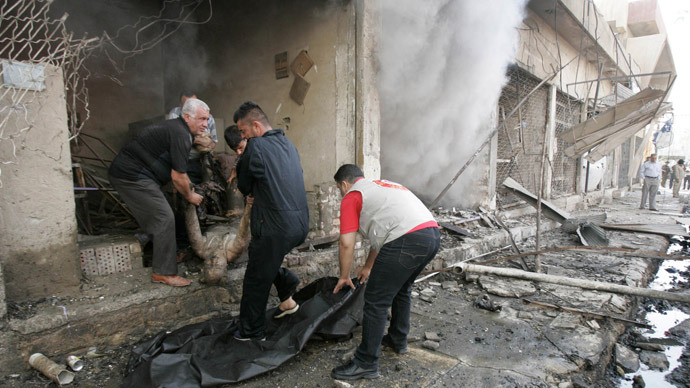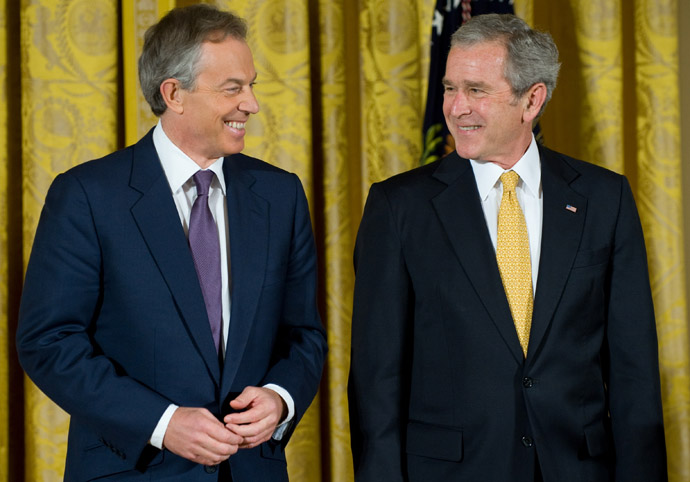Situation in Iraq ‘much worse’ than decade ago

The US-led invasion made things much worse in Iraq, and the West hasn’t learnt lessons from the campaign, still ignoring the interests of people they invade or occupy, historian Tariq Ali told RT on the 10th anniversary of the start of the Iraq War.
A series of attacks in Baghdad have left dozens dead and around
a hundred injured as the country marks 10 years since the start of
the US-led campaign. The war didn’t bring anything but destruction
and grief to Iraq, believes Tariq Ali.
RT:Ten years on from the US-led invasion are things
better or worse for the people of Iraq?
Tariq Ali: Much, much worse - I don’t think there is any
doubt about that. Those of us who warned before the US, Britain and
their allies went in that this would be the result, proved right.
Now we have declassified information coming out saying that the
neo-cons, who were running the US at the time, wanted Iraqi oil.
They were annoyed it was still nationalized and they wanted to
privatize it. This is now a well-known fact. No one challenges
it.
So all the guff about weapons of mass destruction we now know, as
some of us said at the time, that the intelligence agencies of the
US and Britain themselves are not convinced about that. They would
be forced and pressured by politicians to prettify the information,
to give them an excuse. This has all come out and no one has been
tried for lying, for war crimes.
So we have these double standards going and the figures given in
the Western press between 120 to 150,000 people killed – it’s
grotesque. The government, put into place by the occupation
themselves, say that there are 5 million orphans in Iraq.
RT:Britain's former Prime Minister Tony Blair says the
invasion got rid of a tyrant - is that not sufficient
justification?
TA: Of course, the people of Iraq didn’t have democracy,
they were ruled by a one-party state – that is absolutely true. But
their living conditions were better not just in Baghdad but in
other cities as well despite the sanctions, which were meant to
crush them and which led to the death of over 500,000 children
because medicines were denied to them even before the war.

The attempt to crush Iraq had been going for a long time. But despite that the social infrastructure was repaired after the First Gulf War, medical, educational facilities were functioning, there were food subsidies so people weren’t starving.
Compared to what is going on now the social situation was much better. Politically what we now see it the occupying powers coming in and doing what imperialism does all the time – dividing rule, creating huge divide by giving the Shi'ite clerical parties total bar, destroying the old state completely and the result is what we see on the street today.
RT:Has the West failed to learn from Iraq, given that it's since meddled in conflicts in North Africa and the Middle East - such as Libya and Syria? TA:They certainly have. I mean, what they did in Libya on a minor scale was not that different from Iraq. Here they were even more hypocritical because they had been treating [Muammar] Gaddafi as a world statesman, he had been giving money to politicians, governments, institutions in Britain, France, the US and elsewhere. But suddenly they saw an opportunity to privatize Libyan oil and they went in. With NATO bombing Libyan cities for six months we still have no casualty figures.
As for Syria, massively the open intervention was stopped, but the situation there is pretty grim. So they learnt no lessons at all. The great empires of the world act only in their interests, not the interests of people they invade or occupy. History teaches us that.
The statements, views and opinions expressed in this column are solely those of the author and do not necessarily represent those of RT.












